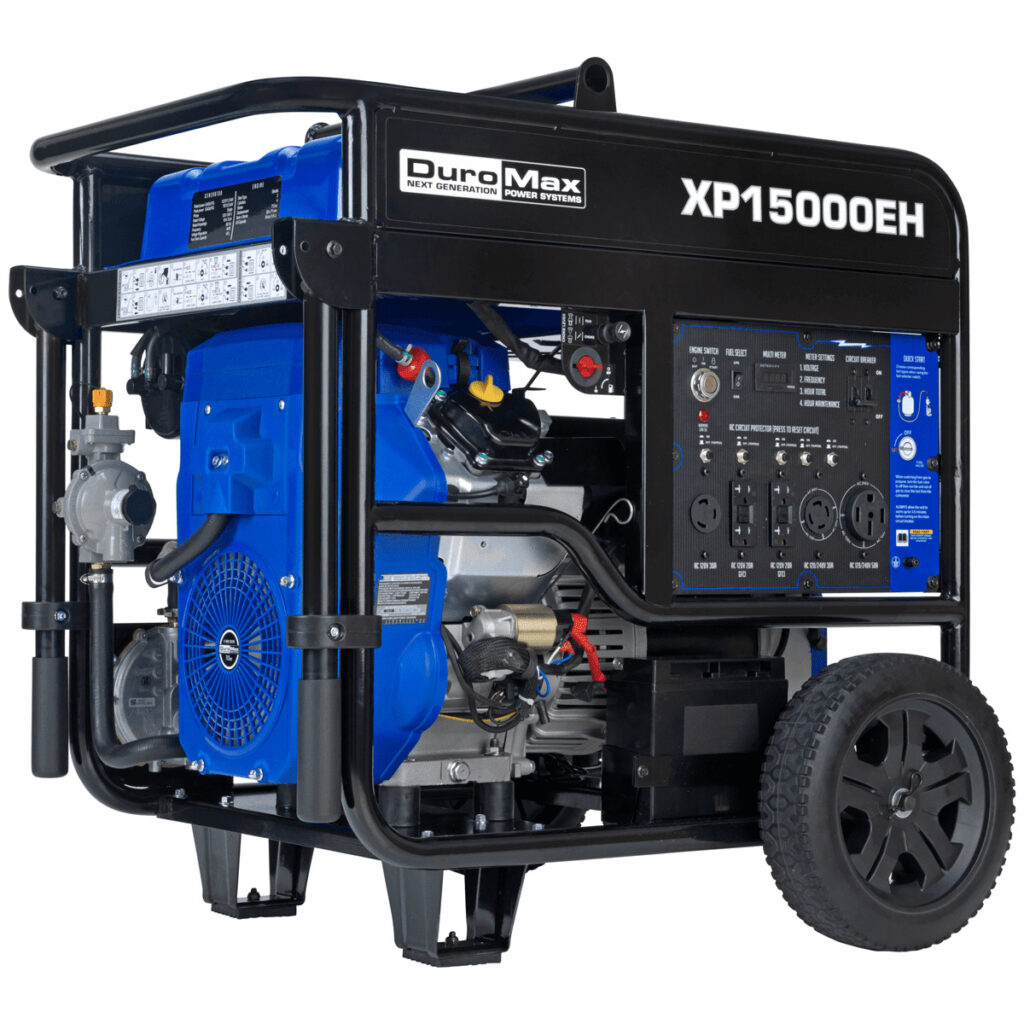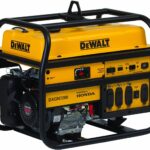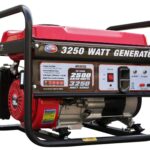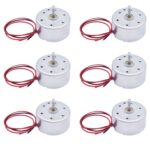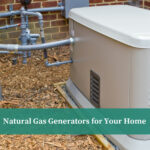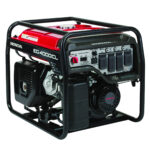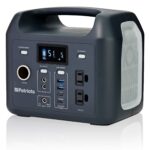Large dual fuel generators are becoming increasingly popular due to their convenience and reliability. They combine the power and efficiency of a traditional gas-powered generator with the convenience of a dual fuel option. The dual fuel option allows the generator to run on either gasoline or propane, making it ideal for off-grid living or during times of power outages. With a large dual fuel generator, you get the best of both worlds – convenience and reliability.
Definition of a Generator
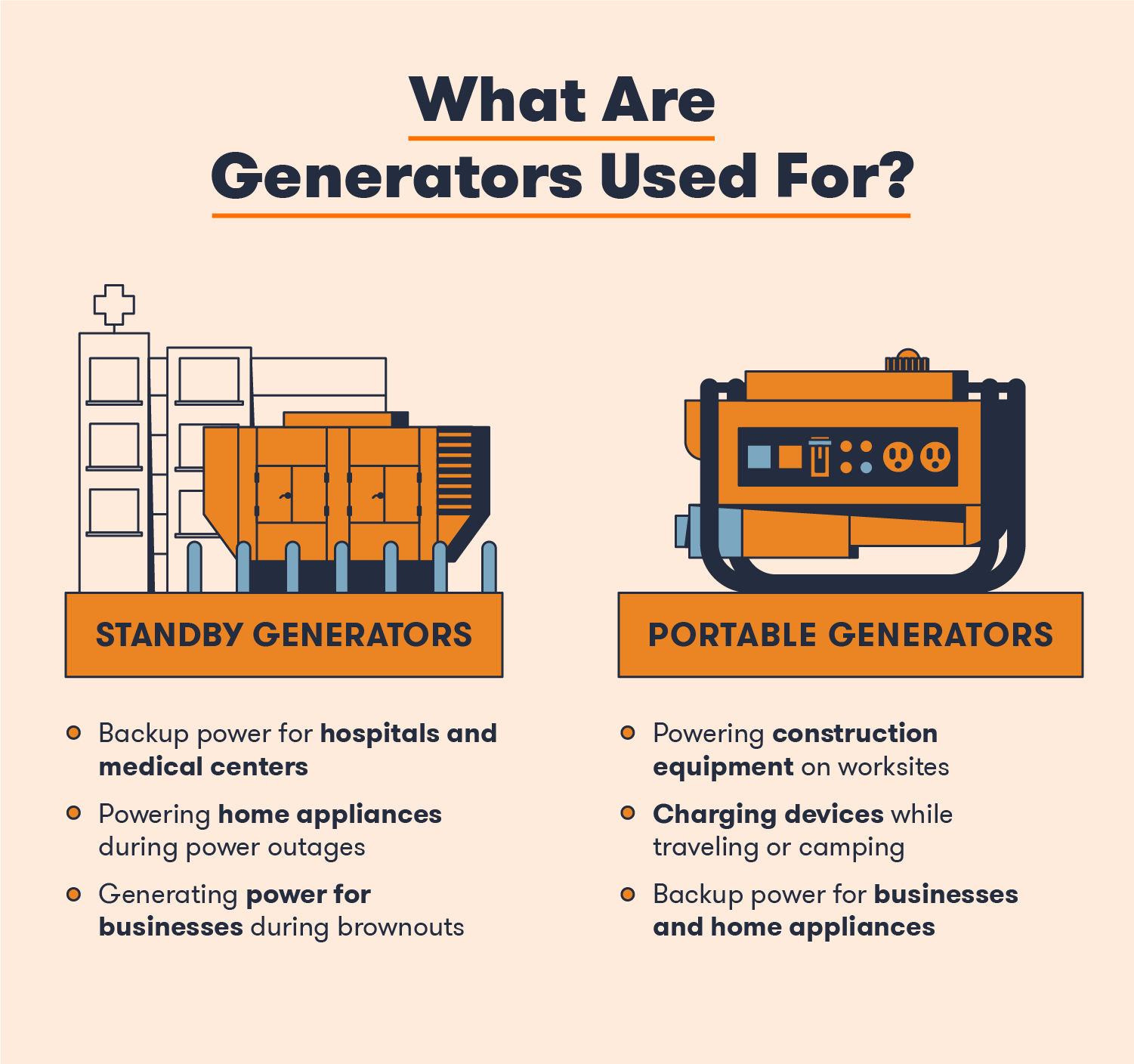
A generator is a device that produces electrical energy from mechanical energy. It typically uses a fuel source such as diesel, natural gas, or propane to generate electricity. Generators can be used for emergency power backup, to provide power for portable applications, or to supply power to a large facility.
| Type | Description |
|---|---|
| Portable | Designed for short term use and transportation, these generators are typically run on gasoline. |
| Standby | These generators provide a continuous supply of electricity and are typically powered by natural gas or propane. |
| Prime | Designed for continuous operation, these generators are typically powered by diesel. |
Types of Generators
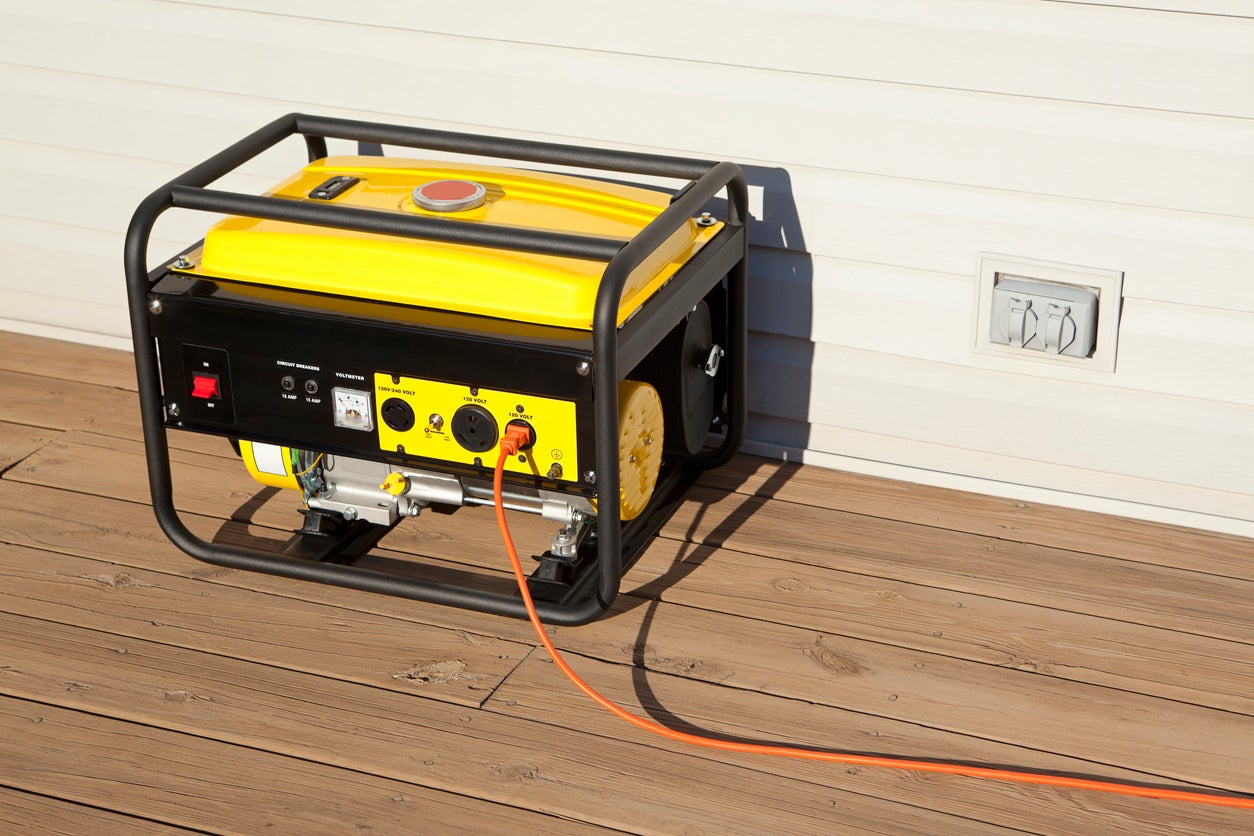
Generators come in various types, including portable, standby, inverter, and dual fuel generators. Portable generators are typically used for short-term power outages and are powered by gasoline or diesel. Standby generators are larger than portable generators and are permanently installed in the home or business and are powered by natural gas or propane. Inverter generators are smaller than portable generators and are usually used for camping or recreational vehicles. Dual fuel generators are a combination of the two and are powered by both gasoline and propane. Large dual fuel generators are usually used to power large commercial or industrial buildings.
What is a Dual Fuel Generator?
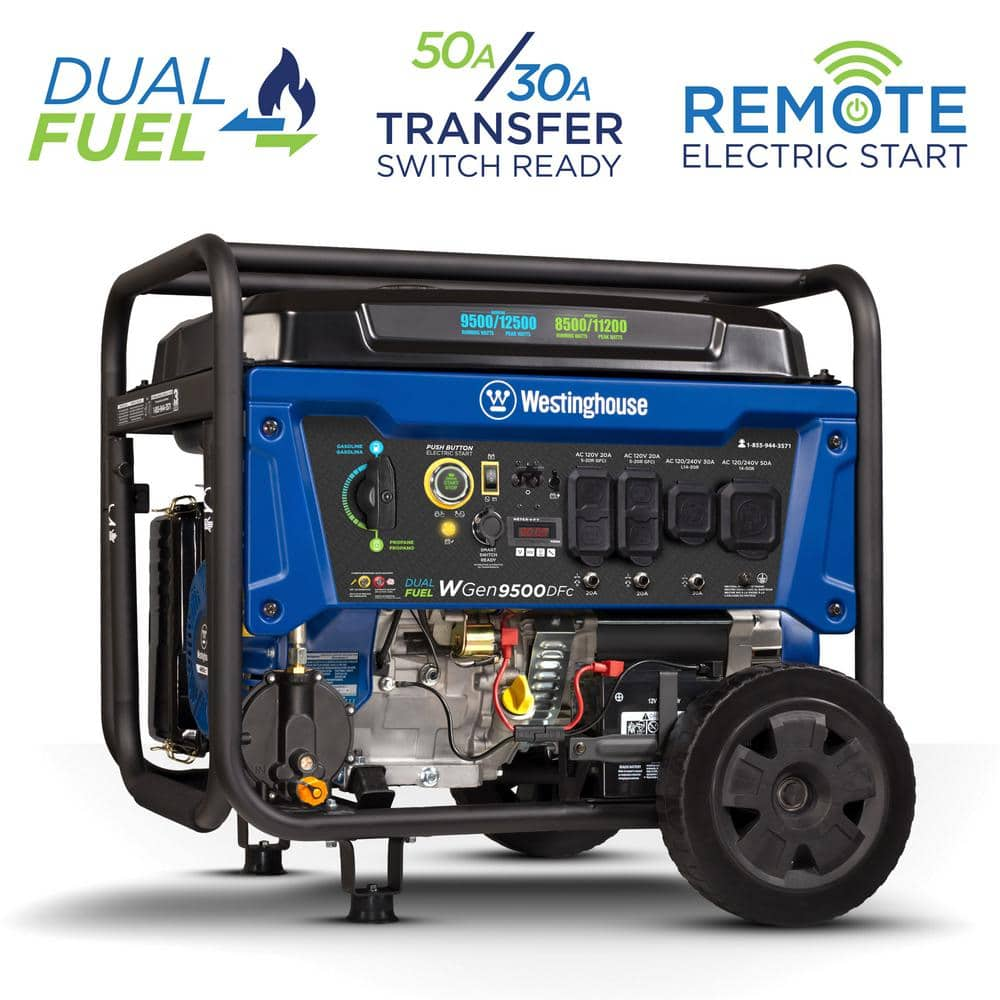
A dual fuel generator is a generator that can switch between two different fuel sources, typically gasoline and propane. This allows the generator to be used in a variety of different environments, as it can be powered by either fuel source. A large dual fuel generator may also include diesel fuel as an additional fuel option, providing more versatility and power. Dual fuel generators are typically used in applications where the availability of fuel is not consistent, or when the generator needs to be used in an area where only one fuel is available. They are also useful for applications such as emergency power or industrial backup, where it is important to have an alternate fuel option.
Advantages of a Dual Fuel Generator
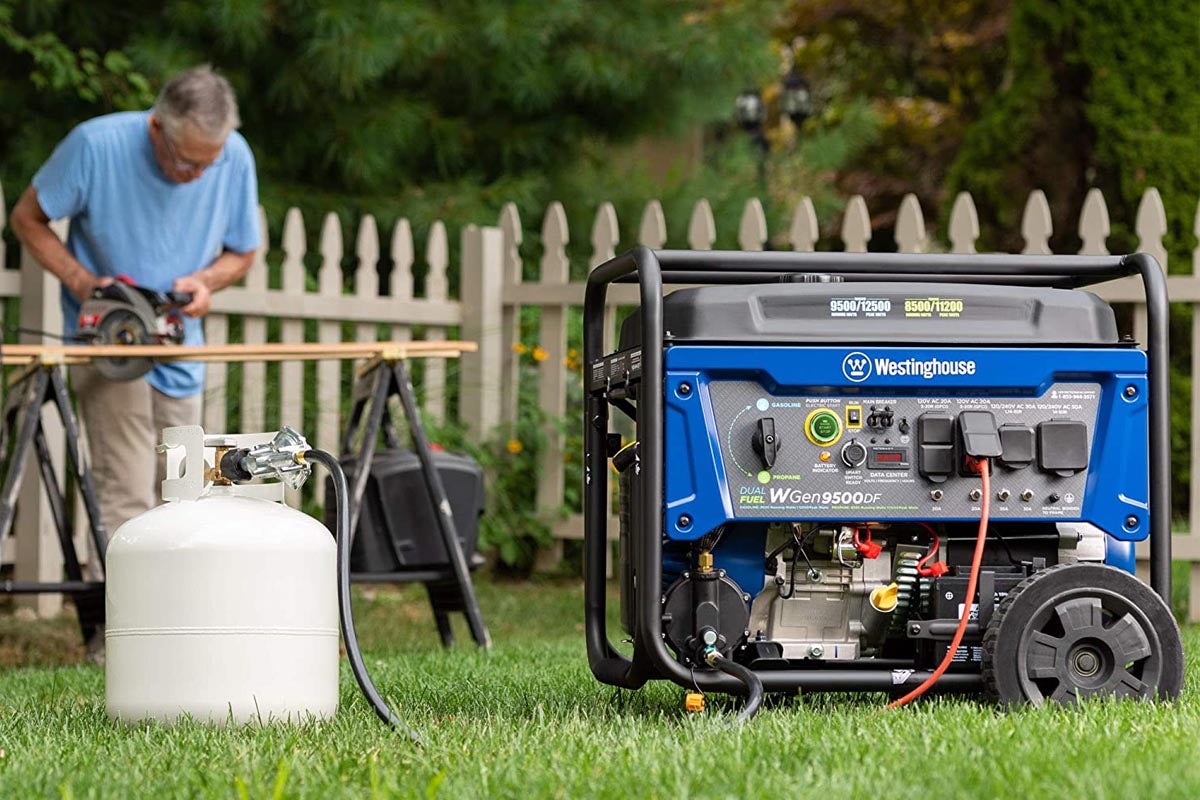
A dual fuel generator is a type of generator that has the capability of running on two different types of fuel. This type of generator can be a great investment for those who need an emergency back-up power source or a reliable source of power in remote locations. Dual fuel generators offer numerous advantages over single fuel generators, including:
1. Cost Savings: With a dual fuel generator, you can save money on fuel costs by using one fuel over another. For example, if natural gas prices are high, you can switch to gasoline to reduce the cost of running your generator.
2. Flexibility: With a dual fuel generator, you can switch between fuels quickly and easily. This makes it a great option for those who may need to switch to a different fuel source depending on the situation.
3. Reliability: Dual fuel generators are designed to be reliable and efficient. They are built to handle multiple fuel sources, so you know that your generator will work regardless of the fuel source.
4. Durability: Dual fuel generators are often built to last. They are made with high-quality parts that are designed to stand up to rugged environments and long-term use.
5. Safety: Dual fuel generators are designed to be safe and reliable. They are equipped with built-in safety features such as fuel shut-off valves, pressure relief valves, and spark arrestors.
Overall, dual fuel generators are a great way to ensure a reliable and safe power source in any situation. They are a cost-effective and flexible solution for those who need an emergency back-up power source or a reliable source of power in remote locations.
Factors to Consider When Purchasing a Large Dual Fuel Generator
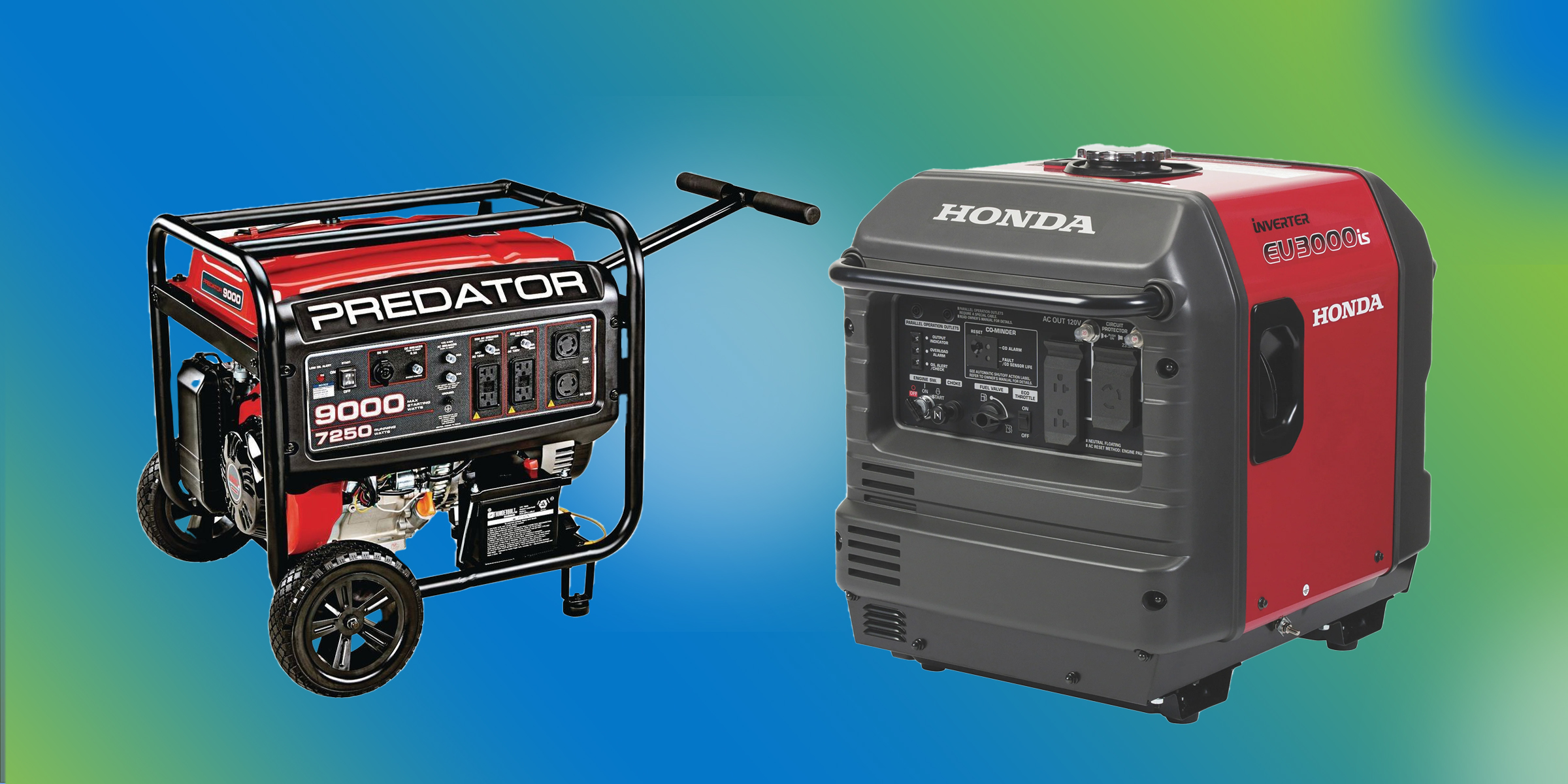
- Fuel Efficiency: Consider the fuel efficiency of the generator. If you intend to use it for long periods of time, make sure it has an efficient fuel-to-energy conversion rate.
- Size and Weight: A large dual fuel generator is usually heavy and bulky. Make sure you have adequate space and the ability to transport it to your desired location.
- Noise Level: Different generators produce different levels of noise. If you want to use it in a residential area, look for a model with a lower decibel level.
- Maintenance: Make sure that you can easily maintain the generator and that it has readily available spare parts. This will help you keep it running efficiently for a longer period of time.
- Power Output: Different generators have different power outputs. Ensure that the generator you choose is capable of providing the amount of power you require.
- Safety Features: Look for safety features such as an automatic shut-off switch, an overload protection system, and a spark arrestor.
- Price: Consider the cost of the generator. There are models that are more expensive than others, so make sure you get the one that best fits your budget.
Popular Large Dual Fuel Generators
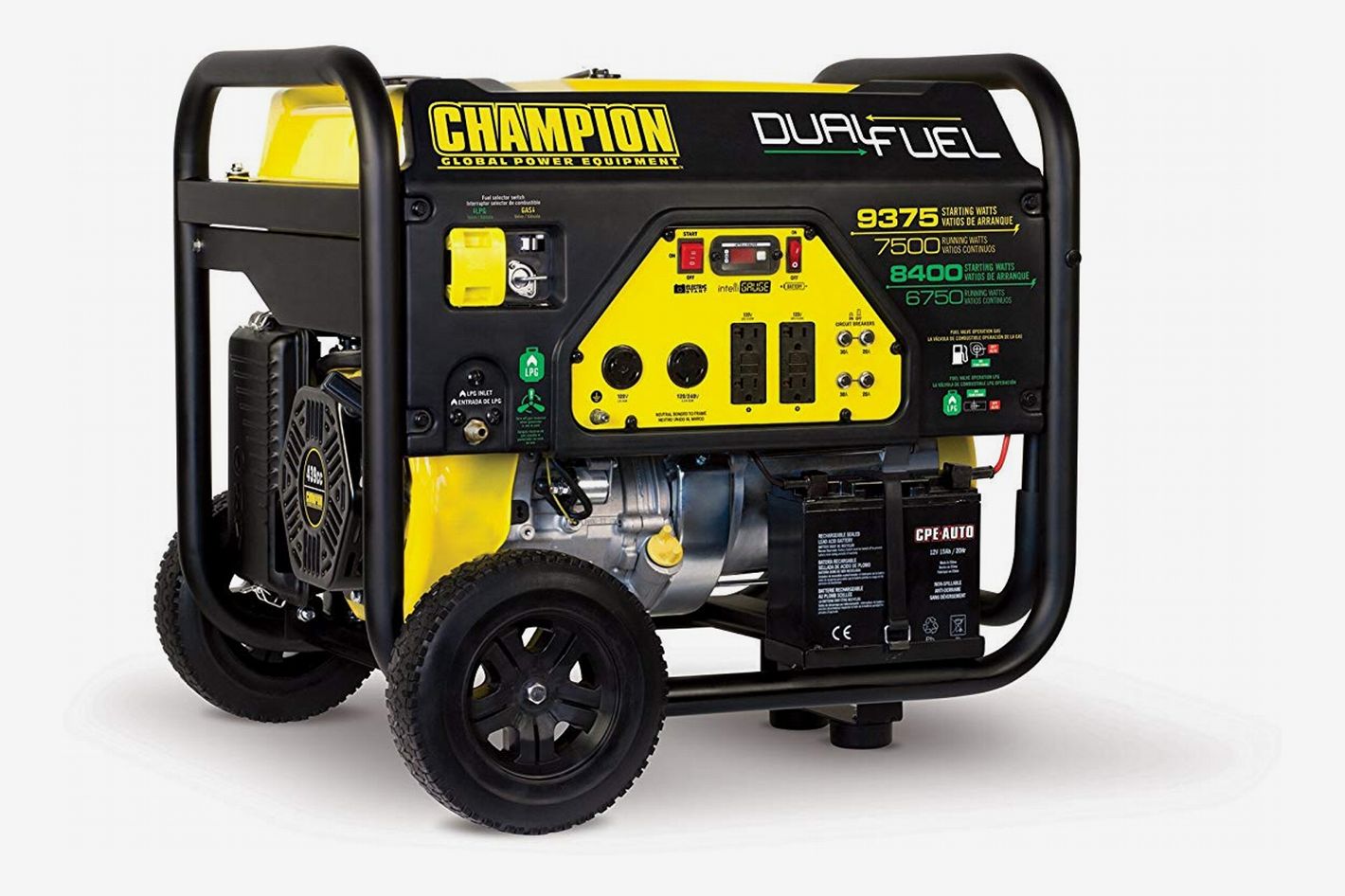
- DuroStar DS10000E 10,000-Watt 18 HP Portable Electric Start Dual Fuel Generator
- Westinghouse WGen7500 Portable Generator with Remote Electric Start
- Champion Power Equipment 75537i 3100 Watt RV Ready Portable Inverter Generator
- DuroMax XP12000EH 12,000-Watt 18 HP Portable Hybrid Gas Propane Generator
- Pulsar PG10000B16 10,000 Watt Portable Dual Fuel Generator
- Generac 6866 iQ2000 Super Quiet 2000-Watt Inverter Generator
- Champion 3800-Watt Dual Fuel RV Ready Portable Generator with Electric Start
- Generac 7043 Home Standby Generator Guardian Series 22/19.5kW Air-Cooled with Wi-Fi
- Champion 3500-Watt RV Ready Portable Generator with Wireless Remote Start
- Pulsar G12KBN 12000-Watt Portable Dual Fuel Generator with Electric Start
Dual fuel generators are a great choice for those who need both portability and the flexibility of using either gasoline or propane. Some of the most popular large dual fuel generators are those with a power output of 10,000 watts or more. They are perfect for powering larger appliances in an RV, or for providing backup power during an outage. Some of the best large dual fuel generators on the market include the DuroStar DS10000E, Westinghouse WGen7500, Champion Power Equipment 75537i, DuroMax XP12000EH, Pulsar PG10000B16, Generac 6866 iQ2000, Champion 3800-Watt, Generac 7043, Champion 3500-Watt, and Pulsar G12KBN.
Comparing Large Dual Fuel Generators
| Generator | Fuel Capacity | Output (kW) | Noise Level (dB) |
|---|---|---|---|
| Generator A | 20 gallons | 13.5 kW | 71 dB |
| Generator B | 25 gallons | 15 kW | 72 dB |
| Generator C | 30 gallons | 18 kW | 75 dB |
Large dual fuel generators are a great option for those looking for an emergency power source. Comparing generators side-by-side can help narrow down the right choice. Generator A has a fuel capacity of 20 gallons and produces 13.5 kW of power with a noise level of 71 dB. Generator B has a fuel capacity of 25 gallons and produces 15 kW with a noise level of 72 dB. Generator C has a fuel capacity of 30 gallons and produces 18 kW with a noise level of 75 dB.
Fuel capacity is an important factor to consider when comparing dual fuel generators. Generator A has the least fuel capacity, but is still able to produce 13.5 kW of power. Generator B has a larger fuel capacity, but only produces 15 kW of power. Generator C has the highest fuel capacity and the highest output at 18 kW.
Noise levels are also important to consider when choosing a generator. Generator A produces the least noise at 71 dB, while Generator C produces the highest noise at 75 dB.
In conclusion, the best dual fuel generator will depend on the user’s needs. Generator A has the least fuel capacity and produces the least noise, while Generator C has the highest fuel capacity and produces the highest output.
Maintenance of a Large Dual Fuel Generator
It is important to properly maintain a large dual fuel generator in order to ensure its safe and efficient operation. Regular maintenance should include checking the oil and fuel levels, as well as testing the battery and generator start-up system. The air filter should also be inspected periodically, and the spark plugs should be changed when needed. Additionally, the generator should be tested regularly, preferably at least once a month, to ensure that it is working properly.
To perform maintenance on a large dual fuel generator, the engine should be shut down, and the fuel and oil should be drained. The air filter should then be removed and cleaned with a vacuum or compressed air. The spark plugs should be inspected for wear and replaced if necessary. The battery should also be tested and the terminals should be tightened if needed. Additionally, the fuel filter should be changed and the fuel system should be checked for leaks.
Once all maintenance has been completed, the generator should be restarted and tested. If the generator is running properly, it should be left running for at least 15 minutes before being shut down. This will help to ensure that the generator is running properly and safely.
By performing regular maintenance on a large dual fuel generator, it can be kept in optimal condition, helping to ensure that it is running safely and efficiently.
Frequently Asked Questions
What are the advantages of a dual fuel generator?
A dual fuel generator offers several advantages over traditional single fuel generators. Firstly, it offers the flexibility of using either gasoline or propane as a fuel source. This means that you can easily switch between fuels depending on availability or cost. Secondly, dual fuel generators are often more fuel efficient than their single fuel counterparts, providing cost savings for the user. Lastly, dual fuel generators are often quieter and more portable than their single fuel counterparts, making them a great choice for those who need a generator for camping, tailgating, or other outdoor activities.
What is the largest dual fuel portable generator available?
The Westinghouse WGen3600DF is the largest dual fuel portable generator available, with a maximum output of 6,600 running watts and 8,500 peak watts. It is powered by a 457cc Westinghouse 4-stroke OHV engine, and can run on both gasoline and propane. It has four 120V 20A outlets, one 120V 30A twist-lock outlet, one RV 120V 30A outlet, and one 120V/240V 30A outlet, as well as a digital display, an electric start, and a low-oil shutdown.
How reliable are dual fuel generators?
Dual fuel generators are reliable power sources for large-scale applications. They offer a combination of fuel sources such as gasoline and propane, allowing for more reliable and consistent power output. Dual fuel generators are designed to switch from one fuel type to another, ensuring that the unit can continue running in the event of a fuel shortage or outage. They are also more fuel efficient than single fuel generators, making them a cost-effective option for large-scale operations.
How Much Does a Large Dual Fuel Generator Typically Cost?
The cost of a large dual fuel generator can vary greatly depending on the size, make and model. Generally, the cost of a large dual fuel generator can range from $1000 to $10,000 or more. The size and power output of the generator will determine the cost, as well as any additional features the generator may have. Additionally, the cost may be affected by the fuel type, whether it is gasoline, propane or natural gas.
What safety precautions should users take when operating a dual fuel generator?
Users should always read and follow the manufacturer’s safety guidance before operating a dual fuel generator. Wear protective clothing such as safety glasses, gloves, and shoes with non-slip soles when handling the generator. Use the right fuel for the generator, as indicated in the manual. Refill fuel with the generator switched off, and never overfill the tank. Ensure the generator is properly grounded and the exhaust is vented outside. Keep children away from the generator, and do not operate it in enclosed spaces. Regularly check the engine oil and coolant levels, and ensure the generator is serviced regularly.
Conclusion
Large dual fuel generators offer a reliable, convenient and cost-effective solution for powering homes and businesses in the event of a power outage. They provide flexibility in terms of fuel sources and are easy to use, maintain and store. With their low emissions and fuel efficiency, they are also an environmentally friendly choice. Large dual fuel generators are ideal for any application that requires a reliable source of backup power.

